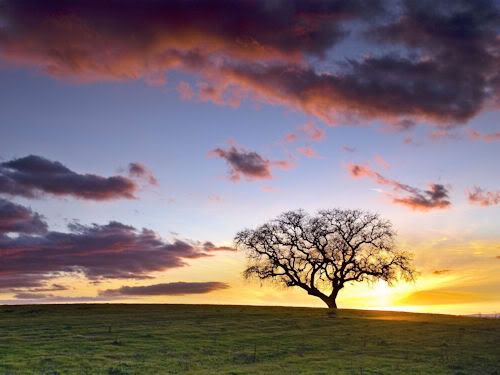
Pacific salmon run helps shape Canada’s ecosystems

Oct 24 2010
Our free market economy is nothing more than a huge auction called ‘Supply and Demand’, which – very efficiently – puts a price on on everything.
The problem is that it allows us to sell everything – the last drop of oil, the last tree, the last fish, the last of everything. It’s called growth – but it is, obviously, growth into oblivion – the exact opposite of EcoEconomics. It is a fatal flaw of our present economic system.
Or, as Greenpeace puts it: “When the last tree is cut, the last river poisoned, and the last fish dead, we will discover that we can’t eat money…”
[…]
The eco-economic price for a natural resource is, therefore, the price you would have to pay if our planet were to release that resource only at a sustainable level.
Who can put a Price on the Environment? … We all should.
Afterall if we end up decimating the planet’s EcoSystems — trying to sell off their once abundant natural resources — We can’t eat the money … or gold either, can we?

Jun 27 2010
copyright © 2010 Betsy L. Angert. BeThink.org
At present, oil saturates the Gulf Stream. An official six-month cessation of permits for new drilling did not actually affect the industry or government decisions. Despite Moratorium, Drilling Projects Move Ahead. To explain such an authorization and waiver, the Department of the Interior and the Minerals Management Services Division which regulates drilling, pointed to public statements by Interior Secretary, Ken Salazar. He did not intend to forbid all first cuts in the Earth’s crust. Absolutely not. The Federal Government approved wells off the coast of Louisiana in June. Regardless of the day, or realities that are anathema to our citizenry, little has truly changed. Today, just as in yesteryear, we, the people of the United States of America, in order to form a more perfect Union, polish policies to appear as though our civilization would wish to protect and defend all beings, equally.
Jun 03 2010
A couple of weeks ago on May 17 we heard and saw Ritter Professor of Oceanography and Director of the Center for Marine Biodiversity and Conservation at the Scripps Institution of Oceanography Jeremy Jackson talk about and show us the shockingly overfished, overheated, and polluted state of our oceans today and how they have been so for long before BP’s Deepwater Horizon catastrophe, with indicators that things will get much worse.
Though he’s been a contract photojournalist for National Geographic Magazine since 1998, Brian Skerry has spent the past three decades telling the stories of the ocean. His images portray not only the aesthetic wonder of the ocean but display an intense journalistic drive for relevance.
In another TED talk posted only a couple of days ago Skerry “brings to light the many pressing issues facing our oceans and its inhabitants. Typically spending eight months of the year in the field, he often faces extreme conditions to capture his subjects. He has lived on the bottom of the sea, spent months aboard fishing boats and dived beneath the Arctic ice to get his shot. He has spent over 10,000 hours underwater.”
Spend 16 minutes with Skerry here and let him share some of his stories of the oceans and show you more of the beauty and natural treasures our society seems so bent on wrecking and losing.
May 18 2010
Over the past few weeks since the BP Deepwater Horizon catastrophe has put the oceans and the environment at the center of our consciousness again, we’ve been hearing a lot about what the oil leak is doing to the Gulf of Mexico.
Juan Cole put it rather eloquently earlier this month in I want My Country back from Big Oil:
We need to end the hidden government subsidies for fossil fuels and make sure their true cost, including climate change, is built into them.
Moreover, we should be generating electricity from alternative sources or natural gas (of which we have a lot) and then moving to electric and hybrid automobiles. (Natural gas burns cleaner than petroleum or coal and is probably a necessary bridge fuel to the alternatives). Going to electric vehicles powered by natural gas, wind and solar plants would be cheaper than rebuilding all the gas stations in the country. Coal should be banned altogether and its use made a hanging crime.
And, we should be matching every penny of the cost of the Gulf clean-up with a huge government Manhattan project on solar energy.
The environmental and economic costs of the oil spill are enormous, but they are tiny compared to the costs of actually burning the oil and spilling more masses of carbon dioxide into the atmosphere. If you’re not alarmed about your future, it is because you have bought the cover-up of climate change, just as Obama bought a cover-up when he believed what he was told about the unlikelihood of oil spills from ocean platforms.
But something else which should probably be concerning us all is the condition our oceans are in, and have been in for many years, even prior to the oil gusher. We live in a much smaller and more fragile world than we tend to think we do, and our decades long mistreatment of our environment, our rivers, lakes and oceans, the dwindling fish and large ocean mammal populations are all very serious concerns.
Jeremy Jackson is the Ritter Professor of Oceanography and Director of the Center for Marine Biodiversity and Conservation at the Scripps Institution of Oceanography. Painting pictures of changing marine environments, particularly coral reefs and the Isthmus of Panama, Jackson’s research captures the extreme environmental decline of the oceans that has accelerated in the past 200 years.
Jackson’s current work focuses on the future of the world’s oceans, given overfishing, habitat destruction and ocean warming, which have fundamentally changed marine ecosystems and led to “the rise of slime.” Although Jackson’s work describes grim circumstances, even garnering him the nickname Dr. Doom, he believes that successful management and conservation strategies can renew the ocean’s health.
In this 18 minute talk from TED.com, Professor Jackson lays out the shocking state of our ocean today: overfished, overheated, polluted, with indicators that things will get much worse.
Jeremy Jackson: How We Wrecked The Oceans
TED.com May 2010
Full transcript below
Apr 18 2010
Cross-posted at DailyKos and was at Progressive Blue.
PBS will be celebrating Earth Day with a special edition of American Experience called “Earth Days” that tracks the American ecological movement and also by showing “Food Inc” on April 21th.
On most PBS stations at 8 PM tonight “Nature” will show “The Thin Green Line” for a second time. It is an indictment of the human race, the fact that we are wiping out the frogs and amphibians and the we will also be sure to follow, has to be the most motivating hour of television I’ve ever seen.
I’ll update my original review below the fold but it would be wonderful if we can get others to watch the devastation so more people will take action. Perhaps you’ve already seen this “greatest mass extinction since the dinosaurs.” and you know that discussing the nature photography alone will get friends to watch. Whatever it takes, people need to get involved and tonight’s PBS line up can make a difference.
May 08 2009
 During last year’s U.S. presidential campaign, Barack Obama campaigned on a pro-pie platform. But apple pie, an epitome of Americanness, is threatened by the apple’s stagnant gene pool.
During last year’s U.S. presidential campaign, Barack Obama campaigned on a pro-pie platform. But apple pie, an epitome of Americanness, is threatened by the apple’s stagnant gene pool.
Like many Americans, the apple is an immigrant to the United States. The apple’s ancestors came from Central Asia. Today, wild apple trees grow in the Tien Shan Mountains in Western China and in neighboring Kazakhstan. Almaty, the former capital, of Kazakhstan literally means ‘the Father of Apples’.
In addition to wild apple, Central Asia is home to more than 300 wild fruit and nut species, including plum, cherry, apricot, pistachio, walnut and many other important food trees from which domesticated varieties are thought to originate.
A team of international scientists have completed an inventory of Central Asia’s trees and identified 44 species in Kazakhstan, Kyrgyzstan, Uzbekistan, Turkmenistan, and Tajikistan as globally threatened with extinction.
Mar 13 2008
cross posted from The Dream Antilles
The Si’an Kaan Bio-reserve is 1.3 million acres of protected land in the State of Quintana Roo, Mexico, about 2 hours south of Cancun, near Tulum. “Sian Ka’an” is translated from Mayan as “where the sky is born” or “gift from the sky”. I was there just a few days ago.
Please join me in paradise.
Jan 12 2008
Yesterday, both the US and Mexico publicly praised NAFTA while Mexican farmers begged for help. According to Reuters:
U.S. officials trumpeted an end to farm trade restrictions under NAFTA, the controversial North American trade deal, on Friday, while Mexican farmers vowed to take to the streets to protest liberalization they fear will run them into the ground. /snip
Mark Keenum, U.S. undersecretary for farm and foreign agriculture, said the agreement had been a win for farmers in both countries, “creating not only dramatic growth in two-way agricultural trade, but providing our farmers, ranchers and processors with the potential (for) new export opportunities.”
This is some kind of a malicious joke. NAFTA is no “win win”. It’s really a disaster for Mexican subsistence farmers, US immigration policy, and bio diversity. The only winner is US agribusiness.
Join me across the Rio Pequeno.